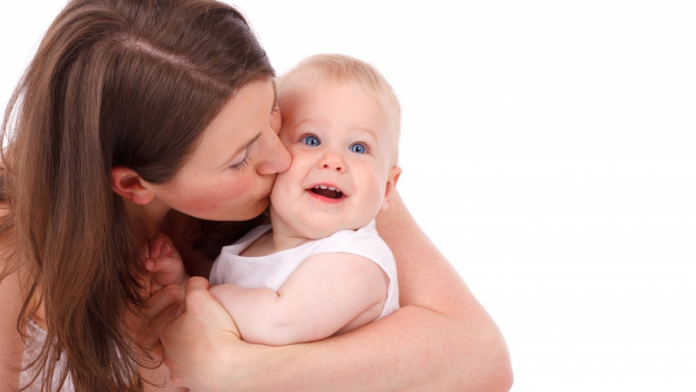Whether it’s finding out the initial news, during the process, or even after giving birth, pregnancy can be an utterly life-changing experience for any woman. Both the mental and physical health is affected quite significantly, and in this latest blog post here below, we pinpoint the main effects pregnancy typically has on a woman’s body, whilst also detailing what exactly changes in the initial stages of pregnancy, and what pregnant mothers, and those wishing to become pregnant, should be aware of.
First trimester pregnancy: what should mothers expect?
Receiving the confirmation that you are pregnant, can, of course, be an incredibly exciting moment in anyone’s life. You may find yourself feeling generally more positive, with plenty of things to look forward to in the coming months. Not to mention the fact that your very own baby is growing and blossoming inside of you.
With all the excitement, though, comes various physical changes to your body that you will begin to notice during the first 12 weeks of pregnancy. The main changes and symptoms of first trimester pregnancy can include:
- fatigue
- heartburn
- constipation
- increased urination
- tender breasts
- swollen breasts
- nausea (with or without vomiting)
- extreme tiredness
- weight gain or weight loss
- headache
Another well-known change that you’ll surely notice during the first few weeks of pregnancy is a change in your particular food cravings. No need to panic if you’re suddenly asking your partner to drive you to the nearest McDonalds at 4am just so you can satisfy those cravings. Perhaps you can forgive yourself for panicking slightly though if you’re a vegan or vegetarian in this situation.
For some, little to none of these symptoms mentioned above are experienced, and it depends entirely on the individual and to what extent their hormonal changes affect them. It should also come as no surprise to you if you notice frequent mood swings and irritability. The increased level of tiredness, fatigue, stress, and the overall physical discomfort of being pregnant can inevitably take its toll on your mood and emotional well-being.
The oestrogen levels in particular are known to skyrocket during the first trimester of one’s pregnancy, and due to this sudden significant change, the chances of a pregnant woman experiencing anxiety and irritability more often than perhaps they’re used to are increased.
It then becomes almost like a tug and war fight between the woman’s oestrogen hormone and her progesterone hormone, as the changes (increase) in progesterone results in the pregnant mother feeling very relaxed. It’s no wonder then that while pregnant you experience extreme and frequent mood swings: your oestrogen pulling you one way, and your progesterone pulling you the other.
Second trimester: does it get easier?
The second trimester, for many, does get easier, with symptoms such as nausea and fatigue starting to fade away. While these symptoms thankfully take the back seat, though, women will notice other changes to their body from around the 13-week mark of their pregnancy. The woman’s abdomen will begin to expand gradually as the baby continues to grow.
The main symptoms that you can expect during your second trimester (week 13 to 28) of your pregnancy include:
- back pain
- abdominal pain
- groin pain
- thigh pain
- carpal tunnel syndrome
- patches of darker skin developing
- itchiness in palms and soles of feet
Again, it is important to stress that not every pregnant woman will experience the symptoms outlined above, but nonetheless, it is important to be as aware and as prepared as possible if you have just fallen pregnant or plan to be pregnant in the near or distant future. It is also worth noting here that the pregnant mother will be expected to be able to feel their baby moving towards the latter stages of the second trimester. So, I think it’s fair to say that it will be worth the ups and downs of the second trimester and the pregnancy as a whole. No greater feeling to be able to physically feel your baby kicking and moving around before being born.
Is the final stretch of pregnancy symptom-free?
Not quite, but you shouldn’t be alarmed if you fear that your baby will cause either yourself or themselves serious health complications. More changes to the body are expected to occur in the final trimester of pregnancy, and these alterations include:
- contractions
- haemorrhoids
- shortness of breath
- trouble sleeping
These, just like all of the symptoms mentioned within this blog post, are to be expected, are completely normal, and so the woman needn’t be alarmed if she notices them. Pregnancy is a difficult journey for any woman to go through, but the reward is the greatest possible gift.
In the final stages of pregnancy, the woman’s cervix will also gradually become thinner. This is a condition known as effacing, and again, is a completely normal occurrence. Effacing occurs in order to help the vagina to open during the actual process of giving birth. The baby will also typically move lower into the abdomen as both mother and baby near the expected due date of delivery.
Although a gruelling journey, the final destination is an incredibly overjoying one. It is important though that we are made aware that, for some, it is certainly not plain sailing (far from it), but this blog post is designed for people who may think or fear that their symptoms are abnormal and that either they or their baby will be adversely affected by the body’s changes during pregnancy.








okay, great idea